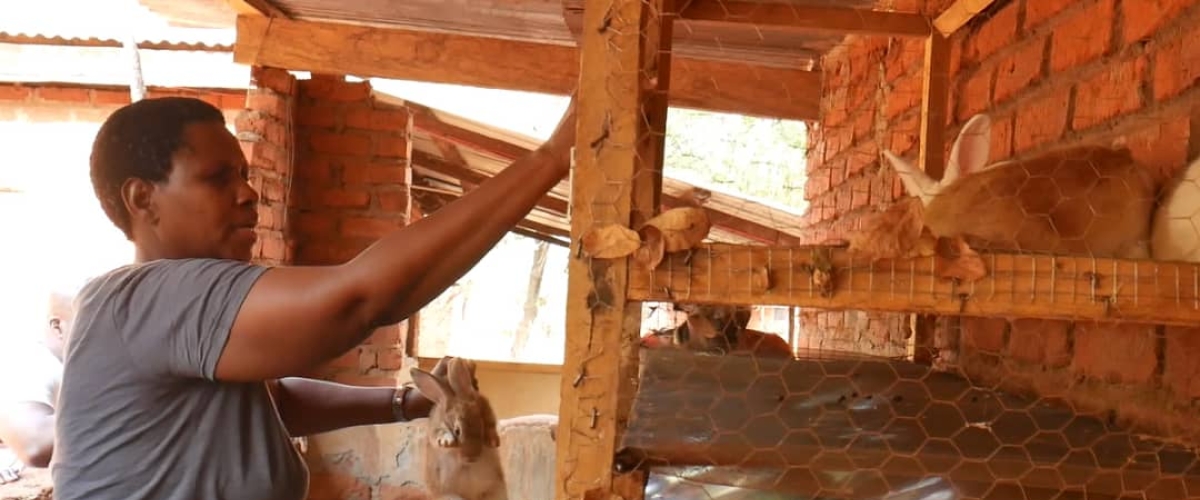
By Gloria Siwisha
Risk-taking involves stepping outside one’s comfort zone, challenging the status quo, and seizing opportunities that others may shy away from, even when the outcome is not certain. That’s exactly what 60-year-old Belita Phiri of Chipata district did in 2002, when she quit her civil service job, to take-up small-scale farming. Like most farmers, she limited her production to crops like maize, soybean and groundnuts -using organic manure - before she later included the rearing of improved village chickens which she accessed through a pass-on initiative by the Government of Zambia.
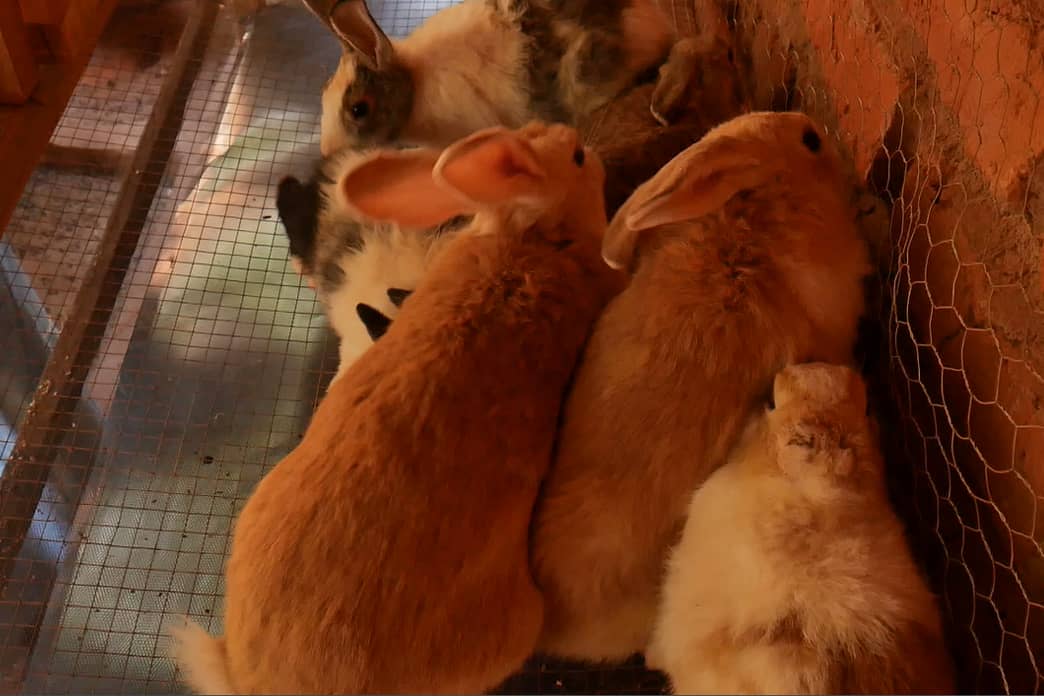
Although knowing fully well that risk-taking could either make or break her new venture, Belita still embraced it believing strongly that it would allow her to explore untapped niches, and position her business uniquely, so as to get a competitive edge in the market. “I don’t do this work alone. My husband always helps, as well as our two friends [workers], since our children are all grown up and living independent lives,” she said,” but I love it and pursue it whole heartedly knowing that it is only through farming that we can achieve socio-economic emancipation.”
Today, Belita is a model farmer in both field crops and chicken rearing. Just recently, she has also diversified into rabbit production, thanks to the Enhanced Smallholder Livestock Investment Programme (E-SLIP), whose goal is to sustainably improve the production and productivity, and the incomes of rural households. The rabbits she received, were part of the Rural Poor Stimulus Facility (RPSF), which was financed by the International Fund for Agricultural Development (IFAD). The facility was launched in April 2020 and offered rural households relief against the ‘COVID – 19’ pandemic.
Belita was among the many beneficiaries who received rabbits which were the relief packages distributed to selected farmers in Zambia. Her rabbit production journey began with a training which was provided by the Ministry of Fisheries and Livestock. “I learned about the E-SLIP rabbit pass-on programme through our extension officer; expressed interest to participate in it, and was subsequently recruited. As per programme requirement, I underwent training before I could be entrusted with the rabbits,” she said, “the training focused mainly on general rabbit management processes, breeding, feeding, disease control, and housing and cage construction.”
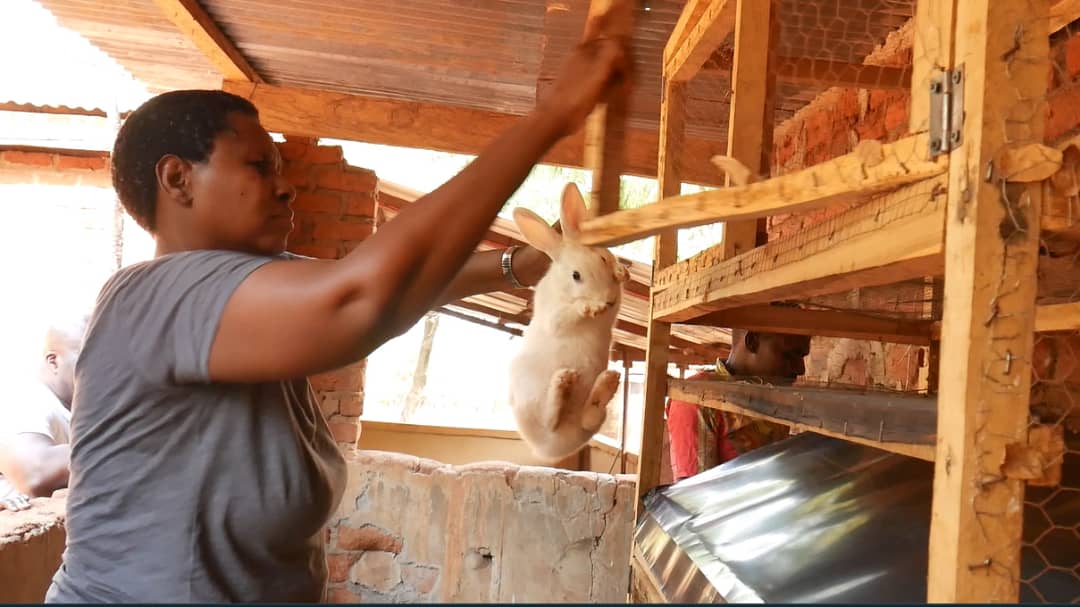
Belita received nine rabbits on condition that she passes-on the same number of off-springs to another set of beneficiaries in the district. “Because of the speed at which rabbits re-produce, their population multiplied to over 80 within a short period of time, to the extent that I managed to pass-on almost 30 rabbits to 12 other women within the community - way above the E-SLIP recommended threshold,” she said, “I still pass-on at least 2 rabbits to every person who shows interest to join this business because sharing brings more blessings.” She further explained that since diversifying into rabbit production, the livelihood and nutrition of her household, had improved significantly.
She has since expanded her livestock business to include other animal species in order to broaden her income base. “If well managed, rabbit production is a profitable business which guarantees quick returns on investments as they reproduce faster – compared to other livestock - and are also not picky when it comes to feeding,” she said, “through rabbit farming, I have also managed to buy pigs, goats, and turkeys that I sell to earn extra income. During the 2023/2024 farming season, I sold some of the pigs and used the proceeds to buy fertilizer which enabled me produce more than 60 by 50 Kilogramme bags of maize.”
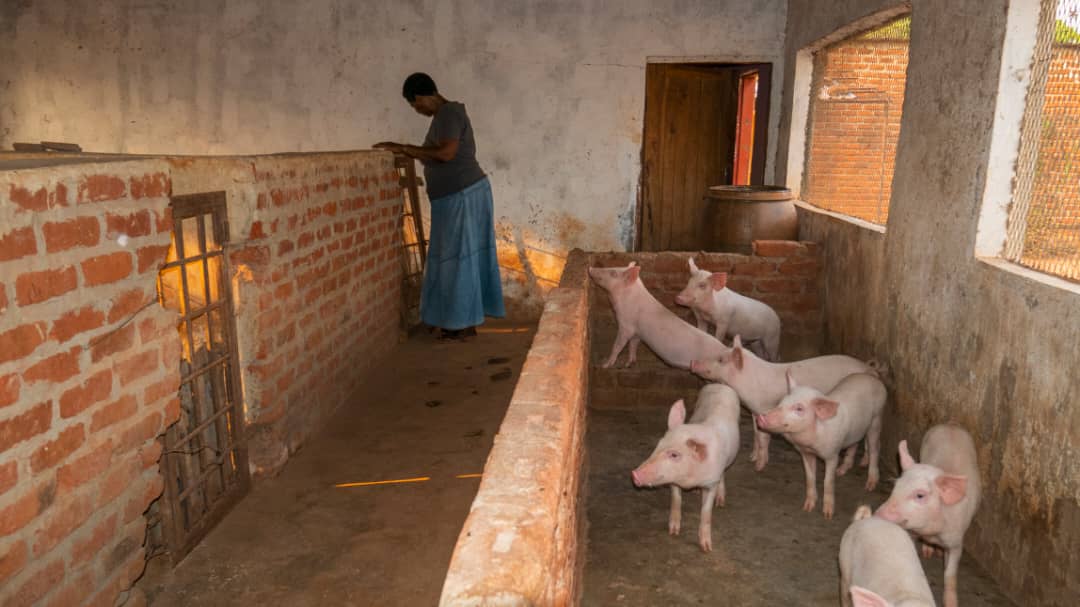
These aren’t the only benefits Belita boasts of. She also uses the rabbit droppings as manure for her orchard of oranges and apples – thereby asserting herself as one of the few smallholders of this era to have fully understood what it means to embrace integrated farming. “Currently, I have more than 10 apple trees that I am nurturing with rabbit manure and they are progressing really well. I also use rabbit urine to control pests in my mangoes, oranges and apple trees,” she said.
However, Belita’s rabbit business has not been without challenges. According to her, the severe drought that the country experienced during the 2023/2024 farming season, drastically impacted production levels. “The notable challenges I experienced were the shortages of feed and water for livestock use. The rabbits were also not reproducing as fast as they do. But, with every challenge comes an opportunity for farmers to explore ways of sustaining production and for me, it was time to engage extension staff regularly on alternative ways to feed rabbits. I also surfed the net where I learned that mango and pawpaw leaves were also good nutrition for rabbits,” she said.
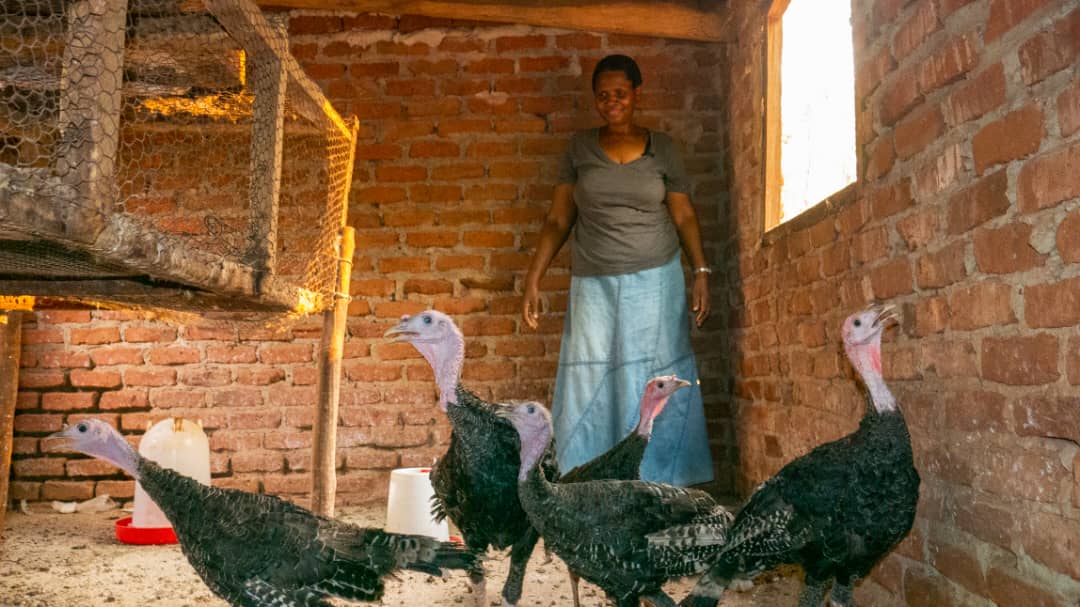
As such, Belita resolved into the production of livestock feed like Rhodes grass and legumes such as velvet beans and cowpeas to sustain feeding. “I had planted a small portion of Rhodes grass last season and want to expand this year, and also include legumes. It’s also my desire to harvest some of the rain water that flows free from the mountains so that there’s sufficient to feed my animals during lean periods,” she said.
Belita is so versatile that she has also embraced the production of herbs such as oregano, and rosemary as alternative sources of income off the rain season. He long term desire is to develop a strong network of rabbit producers in her community - to increase supply - so that she embraces value-addition of rabbits on a large scale.
“E-SLIP’s rabbit pass-on programme has really profited me that’s why I am currently restocking as there are 18 households waiting to each receive a rabbit from me. Together, I want us to create that consistent supply of rabbits so that we engage in value addition,” she said, “During the last agricultural and commercial show in Lusaka, one smoked rabbit, fetched me about K200, compared to a K50 that I would get from the sale of a live rabbit.”
Belita surely stands out as a testament to the power of knowledge, resilience and hard work. She truly is a perfect example of an individual who seized the opportunity that Government provided through initiatives such as E-SLIP, to not only sustainably improve livestock production and productivity, but to also correctly manage it, in order to maximise profits.
The author is a reporter at the National Agriculture Information Services (NAIS) in Zambia.





